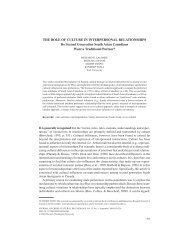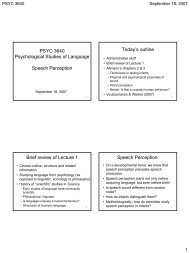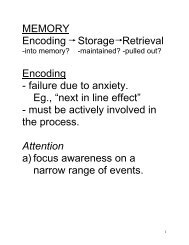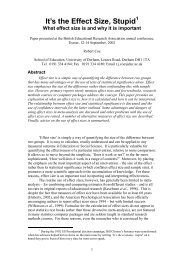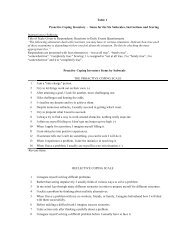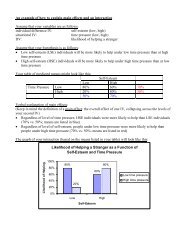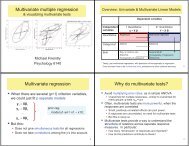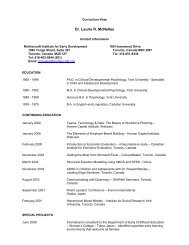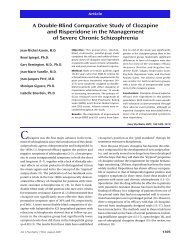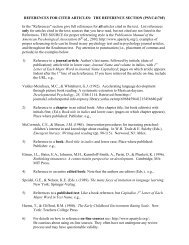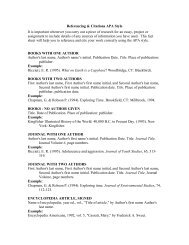The Drama of the Gifted Child (The Search for the True Self)
The Drama of the Gifted Child (The Search for the True Self)
The Drama of the Gifted Child (The Search for the True Self)
Create successful ePaper yourself
Turn your PDF publications into a flip-book with our unique Google optimized e-Paper software.
corded by Mahler, Spitz, and Robertson, confirm my suppositions.<br />
On reading Winnicott, I felt on familiar ground<br />
and encouraged to continue along this path. Finally, Kohut's<br />
studies on narcissism, especially his concept <strong>of</strong> narcissistic<br />
ca<strong>the</strong>xis, helped me to conceptualize <strong>the</strong> relationships<br />
I had discovered.<br />
I shall dispense here with <strong>the</strong> metapsychological language<br />
<strong>of</strong> structure <strong>the</strong>ory and try to develop <strong>the</strong> connections I<br />
want to show on <strong>the</strong> basis <strong>of</strong> <strong>the</strong> mo<strong>the</strong>r-child relationship.<br />
Obviously, a large part <strong>of</strong> <strong>the</strong> events I shall describe<br />
take place intrapsychically, but every internalization is preceded<br />
by an object relationship and its language seems to<br />
me emotionally more true and, <strong>for</strong> some analysts, easier<br />
to understand.<br />
<strong>The</strong> Vicissitudes <strong>of</strong> Narcissistic Needs<br />
We ca<strong>the</strong>ct an object narcissistically, according to Kohut<br />
(1971), when we experience it not as <strong>the</strong> center <strong>of</strong> its own<br />
activity but as a part <strong>of</strong> ourselves. If <strong>the</strong> object does not<br />
behave as we expect or wish, we may at times be immeasurably<br />
disappointed or <strong>of</strong>fended, almost as if an arm<br />
ceased to obey us or a function that we take <strong>for</strong> granted<br />
(such as memory) lets us down. This sudden loss <strong>of</strong> control<br />
may also lead to an intense narcissistic rage.<br />
This sort <strong>of</strong> attitude is met far more frequently in adults<br />
than one might imagine, however much we like to regard<br />
it as pathological, unrealistic, or egocentric. Yet, in <strong>the</strong><br />
earliest stage <strong>of</strong> our life, this is <strong>the</strong> only attitude possible.<br />
Not only during <strong>the</strong> phase <strong>of</strong> primary narcissism (<strong>the</strong> sym-<br />
31



